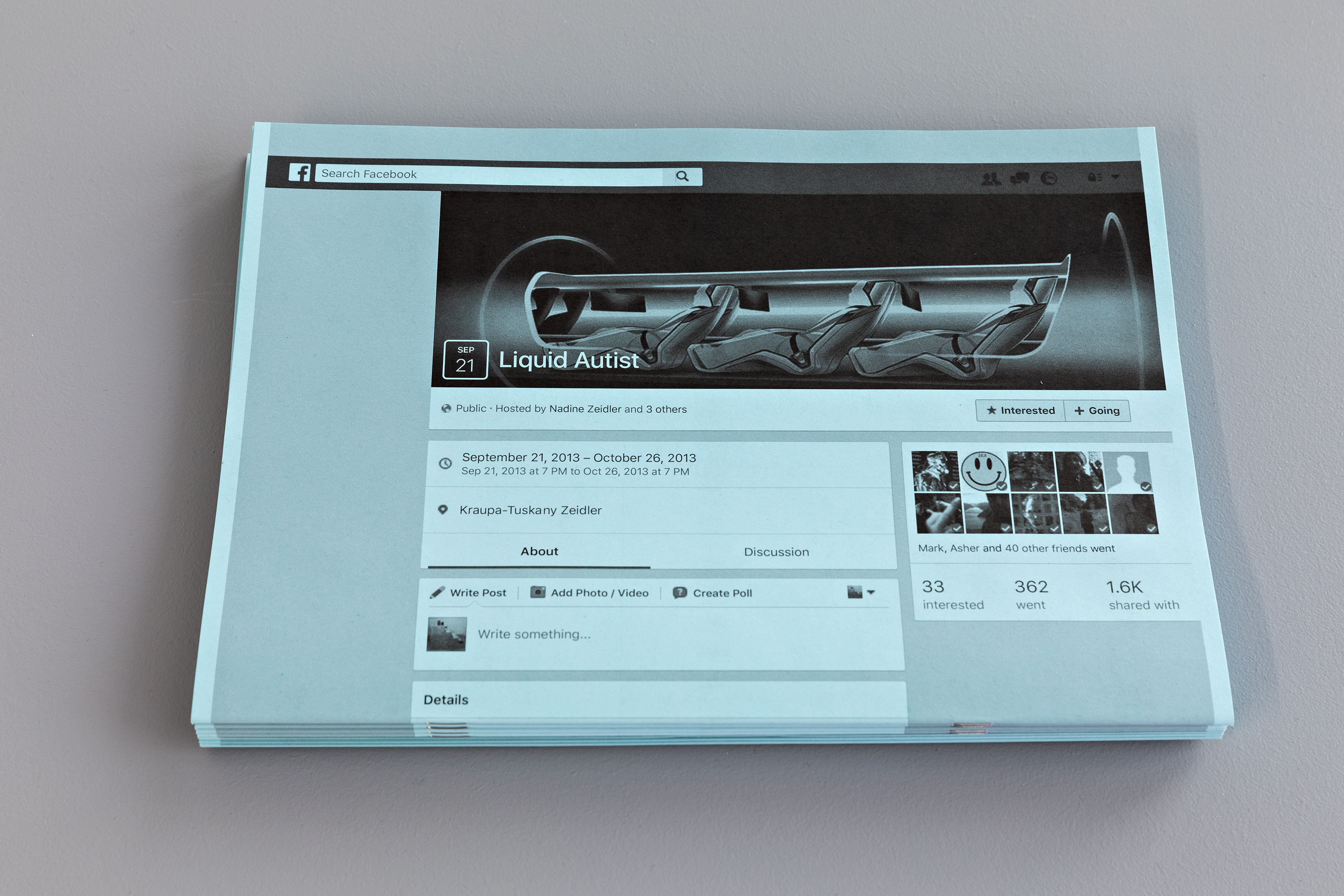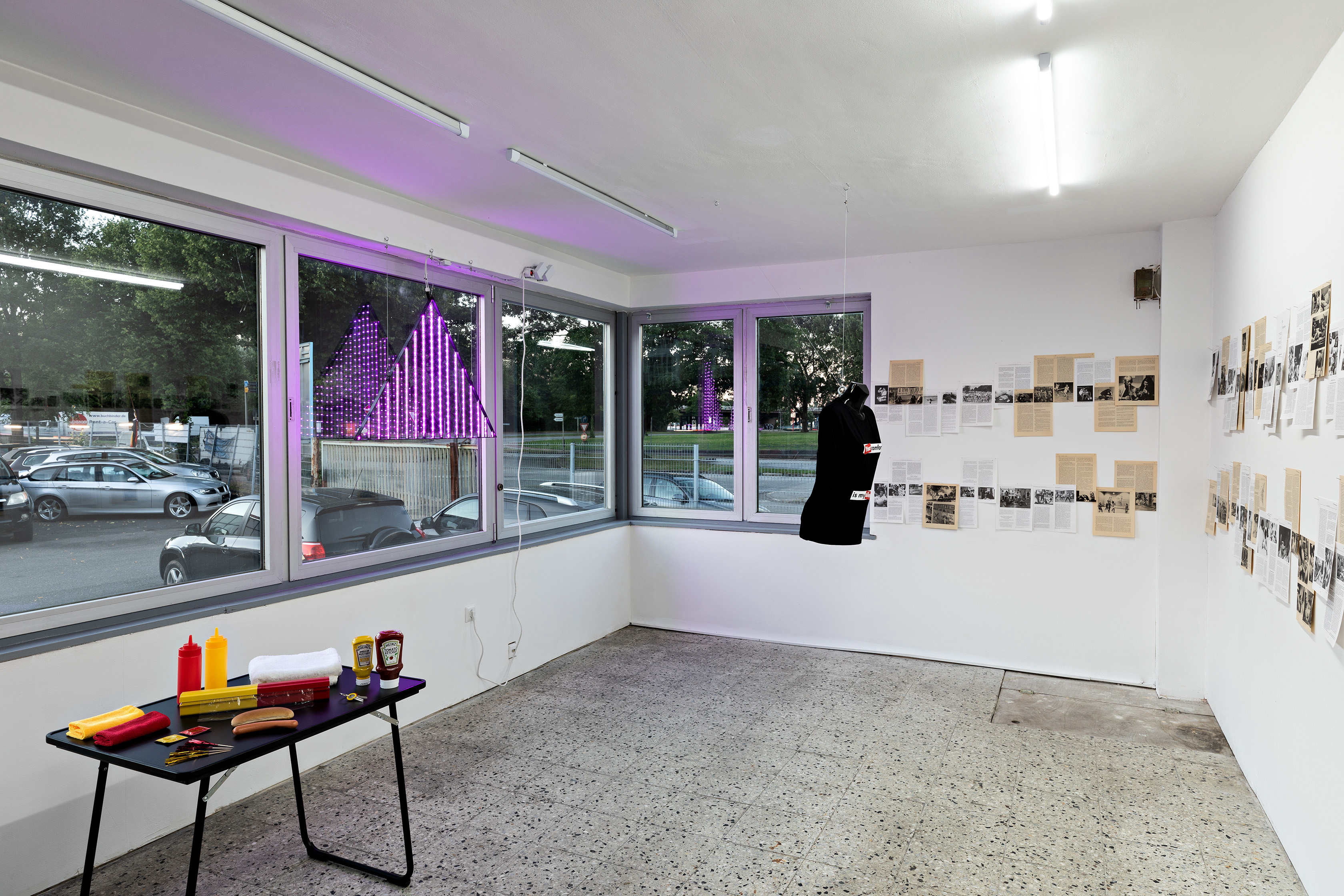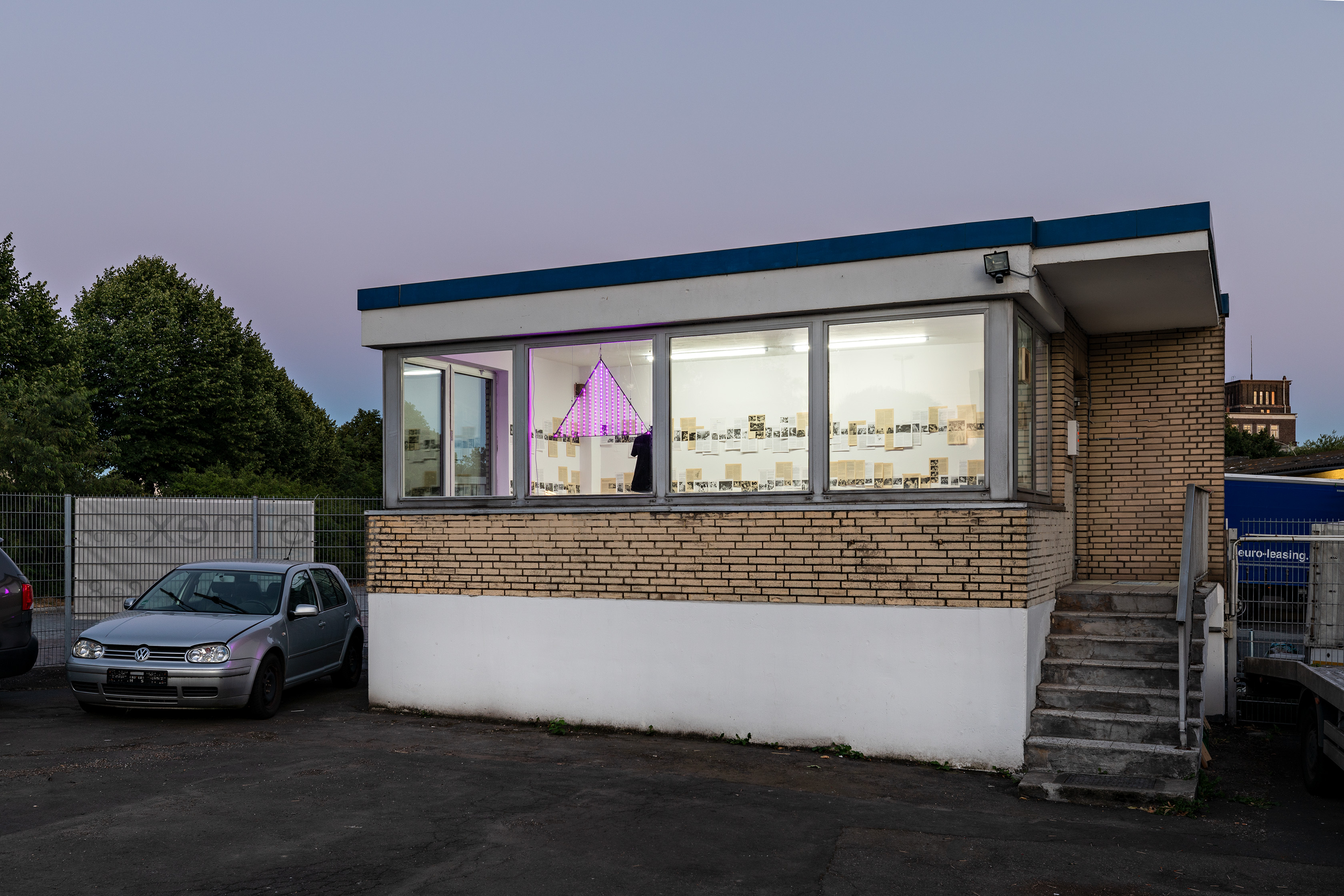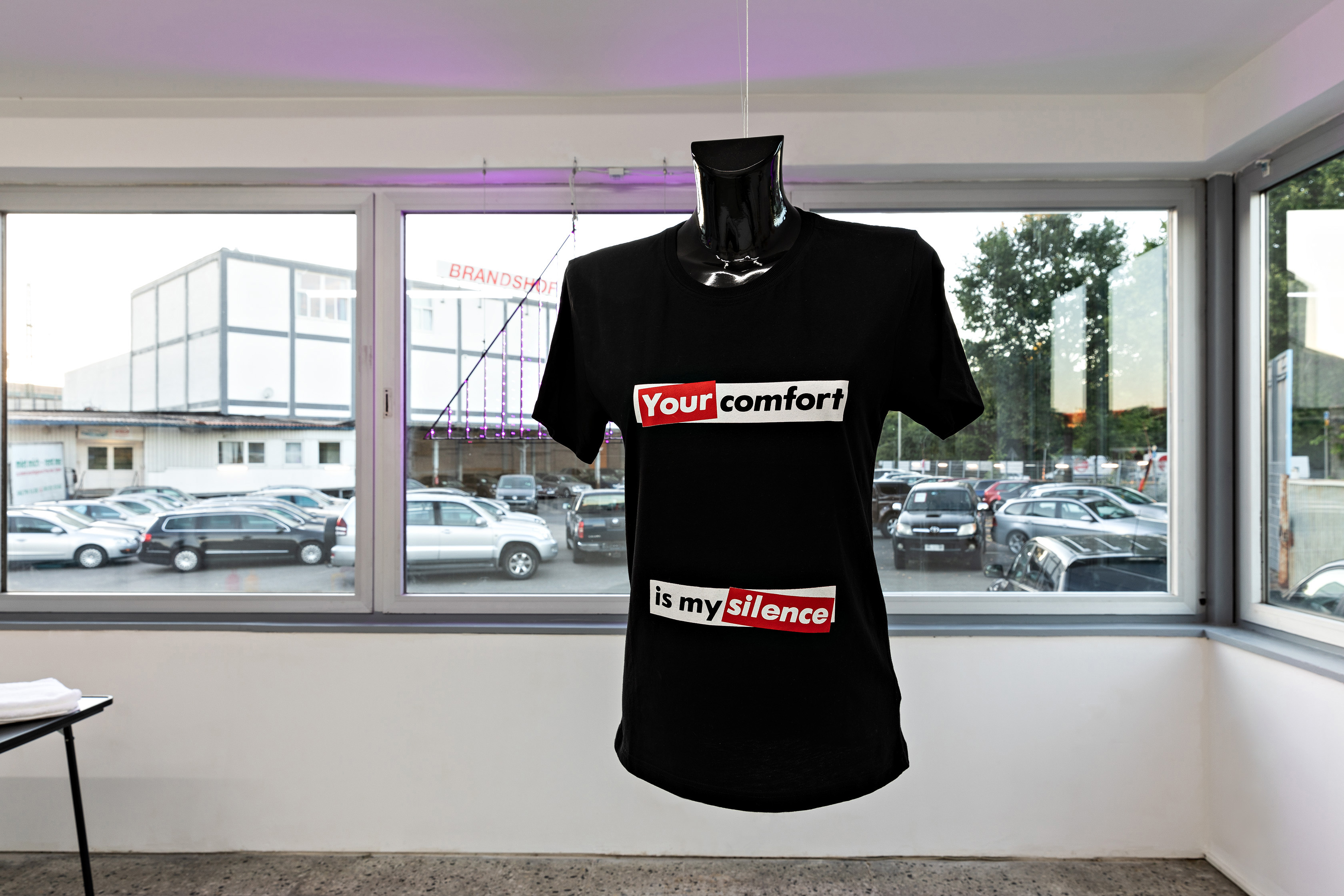
Ramaya Tegegne’s work addresses the processes by which the field of art is constituted. It focuses on those artistic practices which, from the 1960s on, began to make visible art’s social, economic and cultural determination, in this way problematizing dominant mechanisms within the field. Tegegne frames this issue through an examination of the social preconditions of art’s production, presentation and reception under present conditions. When she cites and appropriates historical artistic material, transposing it into a broader context, she does so in order to open up access to existing material, and in this way to open it up to experience.
In Hamburg, Tegegne shifts her focus to feminist and queer artistic practices, which in the 1980s confronted society with its silence towards patriarchal hegemony and heteronormative regimes. She appropriates Barbara Kruger’s image Your Comfort is My Silence, which straightly attacked the hierarchy of gender roles, as well as the distribution of activity and passivity and thus of speech and silence. Likewise, the graphic design Silence = Death, which the artists’ collective Gran Fury used on posters and illuminated signs, bringing the AIDS crisis into public consciousness. In a similar way, Our Bodies, Ourselves has a place within this exhibition: first released in 1970, it was among the earliest publications to offer instruction on female health and sexuality while taking social relations into account. Tegegne’s reflection on art-historical, sociological and economic contexts cuts to the heart of ideological constructions. Her practice forms part of a critical tradition which resists cooptation and rejects ascriptions of value, undermining categories of authorship, originality and singularity. Even the title of the exhibition enquires into the conditions where art can have the potential to change existing social representations. The phrase Welcome to My Rectangle is appropriated from the title of a text and video recording composed by A.L. Steiner, which was inspired by Jack Smith’s writings: it formulates an appeal to overcome the “nice neat rectangles,” and challenge predominant systems of order. Or, Adorno put it, “to resist everything merely posited, that justifies itself with its existence.”
Ramaya Tegegne was born in 1985, and lives and works in Geneva. She has had solo exhibitions at the Park View off-site at Bureau des Realités, Brussels (2018), at Galerie Maria Bernheim, Zurich (2018), at First Continent, Baltimore (2017), and at the FRI ART – Kunsthalle Fribourg (2015). Tegegne has staged performances at, among other venues, the Kunsthalle Basel (2018), the Kunsthalle Bern (2017), and in the Swiss Institute, New York (2016). She is also co-founder of the curatorial project and bookshop Oraibi + Beckbooks in Geneva. In 2017, she launched the campaign Wages For Wages Against, which takes a position toward working conditions in the field of art.
Kindly supported by the Ministry of Culture and Media of the Free and Hanseatic City of Hamburg, and the Federal Chancellery of Austria.
Featured on Contemporary Art Daily, CURA., and Parnass.
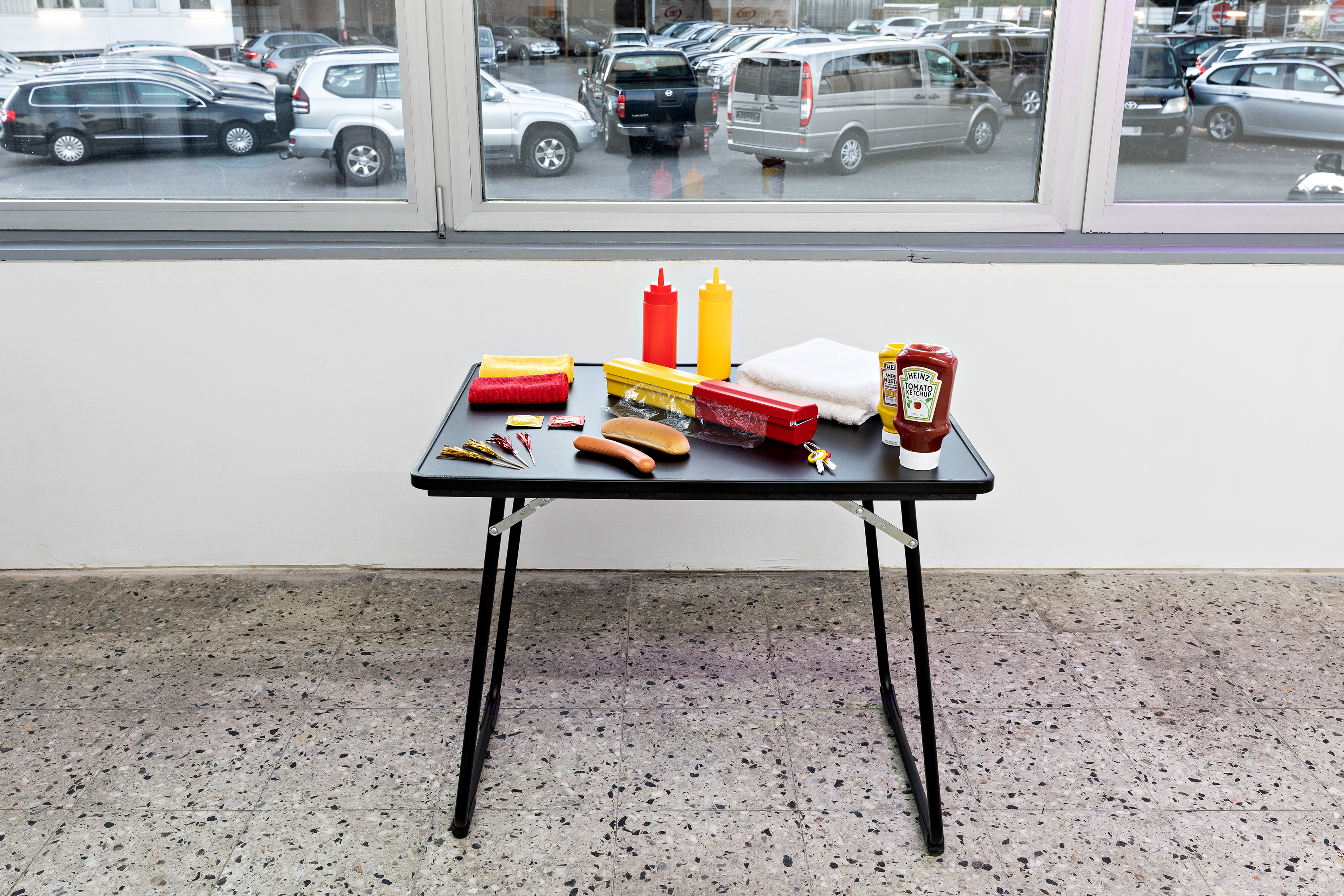
Photo: Fred Dott
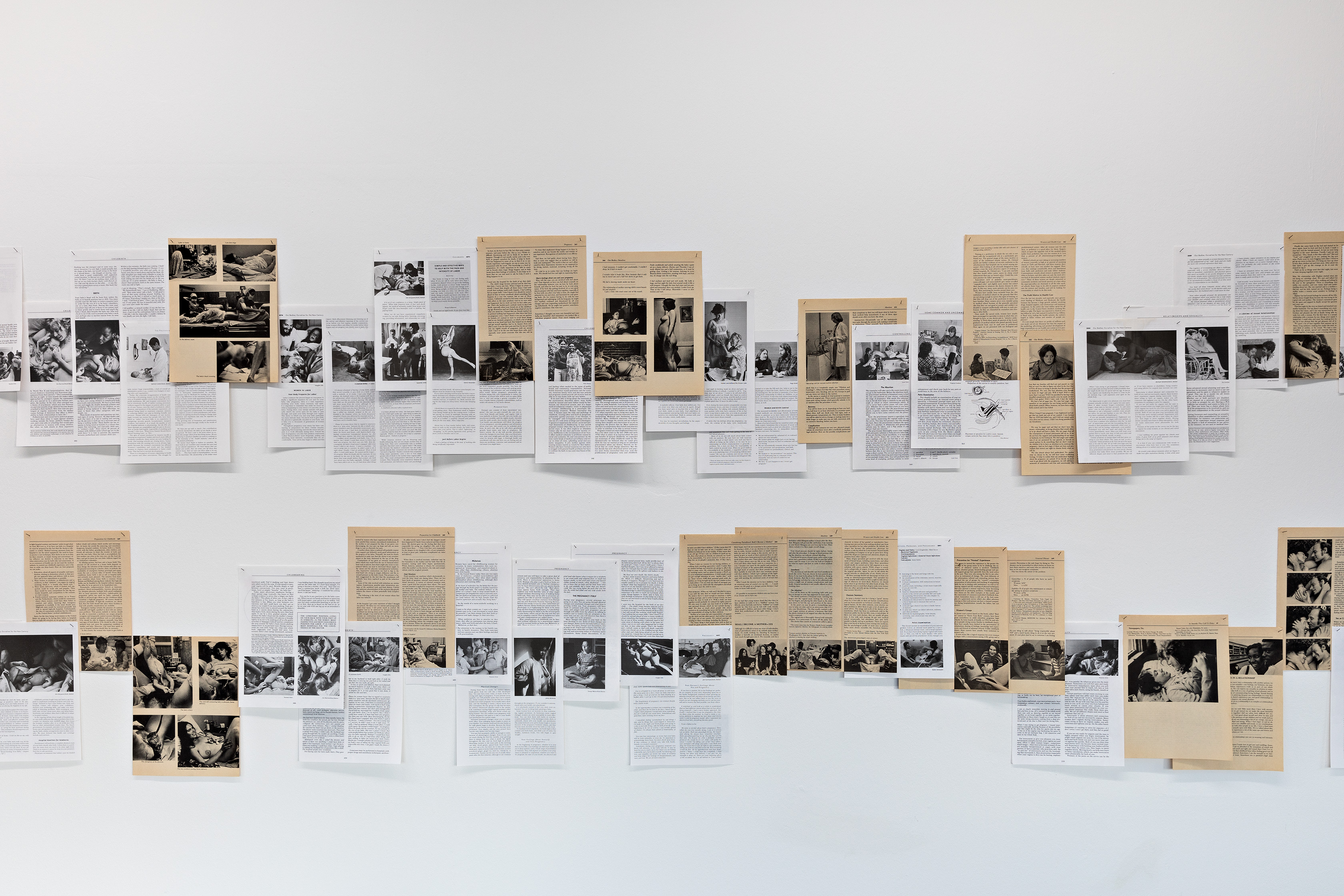
Photo: Fred Dott
